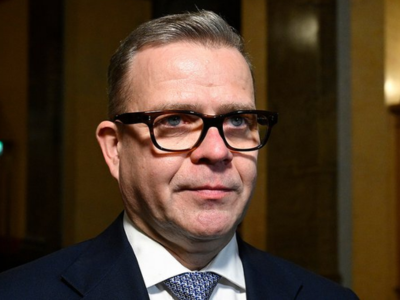NHS Maternity Probe Targets 14 Trusts in Wake of Systemic Failures
- by Admin.
- Sep 15, 2025

Credit:
The UK government has named 14 NHS trusts for scrutiny in a national investigation into maternity and neonatal care, spotlighting longstanding issues that have left families grieving and experts warning of a "toxic" culture of cover-ups across England's health service.
Health Secretary Wes Streeting announced the details on Monday, September 15, 2025, as part of a rapid review launched in June to address complaints dating back over 15 years.
The trusts, selected based on patient surveys, mortality data, family feedback, and demographic diversity, include Blackpool Teaching Hospitals, Bradford Teaching Hospitals, University Hospitals of Leicester, Leeds Teaching Hospitals, Sandwell and West Birmingham, Gloucestershire Hospitals, Yeovil District Hospital, Oxford University Hospitals, University Hospitals Sussex, Barking, Havering and Redbridge University Hospitals, Queen Elizabeth King’s Lynn, University Hospitals of Morecambe Bay, East Kent Hospitals, and Shrewsbury and Telford Hospital.
Streeting praised the "extraordinary courage" of bereaved families who came forward, but some have slammed the probe as inadequate, demanding a full statutory inquiry instead.
Baroness Valerie Amos, chairing the independent review, committed to centering families' voices and staff experiences while examining why past recommendations from inquiries like those in Shrewsbury and Telford (2018-2022) and East Kent (2022) have not led to lasting change. Those reports uncovered patterns of ignored women's concerns, flawed leadership, unlearned safety lessons, and hostile environments, yet similar problems persist. Amos told BBC Radio 4's Today programme that the situation – requiring repeated reviews despite "hundreds" of prior suggestions – is "completely unacceptable."
The probe will pay special attention to disparities affecting black and Asian families, who face higher risks, and aims to deliver interim findings by December 2025 and a full report in spring 2026, alongside national recommendations for safer care.
The selection process involved data from the Care Quality Commission (CQC) maternity surveys and MBRRACE-UK perinatal mortality rates, ensuring a mix of urban and rural sites. This comes amid fresh alarms: a recent Gloucestershire review found nine baby deaths from 2020-2023 preventable, while a Friday report revealed over half of NHS maternity buildings rated unsatisfactory, with 7% at risk of collapse. Research from Sands and Tommy's suggests better care could have saved over 800 babies in 2022-23 alone. General Medical Council chief Charles Massey is set to highlight how a "toxic" NHS cover-up culture normalizes harm to mothers and infants.
Not all feedback is positive. The Maternity Safety Alliance (MSA), representing affected families, called the review "not fit for purpose," accusing Streeting of breaking promises by excluding regulators like the CQC and NHS Resolution. Tom Hender, who lost his son Aubrey in 2022, argued it wrongly pins blame on trusts and clinicians, ignoring systemic crises.
Families from the Shrewsbury inquiry, however, welcomed it as a "brave first step" but urged slower pacing and robust mental health support for participants. The Royal College of Obstetricians and Gynaecologists echoed concerns, noting the focus could heighten anxiety among women, families, and staff in the targeted trusts, where the workforce is "on its knees" with high attrition.
The review runs parallel to a National Maternity and Neonatal Taskforce led by Streeting, which includes immediate steps like a digital safety alert system for trusts by November and an anti-discrimination program. Streeting chose this targeted approach over a broader national inquiry, citing urgency, but critics insist only a comprehensive probe can deliver true accountability and prevent further tragedies in a system serving over 600,000 births annually.













0 Comment(s)